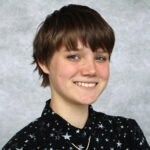
Mustafa Akben, assistant professor of management and newly-appointed director of AI integration at Elon University, is keenly aware of the ever-changing nature of artificial intelligence. And it’s because of the technology that he has found new ways to incorporate AI into his classroom.
As the New York Times reported, most of the newfound hype around AI comes in the wake of OpenAI’s 2022 mass release of ChatGPT, which garnered far greater public attention than previous chatbot and AI releases.
The platform marks the latest in a long line of attempts at enabling computers to think like humans — a process that, according to The Independent, began all the way back in 1956, when computer scientist John McCarthy convened a gathering of intellectuals at Dartmouth University to study the possibility. It was McCarthy who first developed the name “artificial intelligence.”
And AI has become increasingly enticing to universities nationwide: Akben noted Arizona State’s recent contract with OpenAI to provide a new format of ChatGPT, specific to the institution.
Akben strives to integrate AI as ethically and as often as possible in his own classrooms. In order to do this, he has developed chatbots for his students to use. One of the chatbots is called Mock Interview App by Dr. Moose, which helps students find their strengths and weaknesses in a job interview simulation.
In a similar vein, the professor has recently won the Society for Industrial and Organizational Psychology’s international machine learning contest with an AI software that he designed to evaluate individuals’ aptitude for various job positions.
One assignment Akben gives to his students: design their own chatbot.
“It’s much more engaging, better way to present the theories and textbook content,” Akben said.
But Akben does not ignore the flaws that the general public often fixates on. Many AI devices are “generating a content very realistic but full of biases,” Akben said. “So, there are a couple of things that need to be done, and whatever application you are using, you need to be aware of the limitations of these systems.”
AI’s recent progress has not gone uncontested. Akben said people who work in creative fields have taken issue, in particular, with the way that AI can mimic the patterns of their work. Such grievances, according to the Associated Press, have even taken the form of a lawsuit against OpenAI filed in 2023 by author Paul Tremblay, comedian Sarah Silverman and others that alleges that ChatGPT has violated the copyright on their work in order to produce its content.
“There are definitely dangers,” said Chris Hall, a colorist at Trailblazer Studios. On the other hand, he added, “the people who will be able to use AI, and use it to make themselves more productive, more creative, than the next person, will be the ones who prosper.”
Artificial intelligence has seen several positive uses, as well. According to The Wall Street Journal, OpenAI recently partnered with healthcare organization Color Health to create improved, AI-formulated cancer screening plans. Furthermore, “Voice Banking,” a new AI-assisted health technology, helps people with degenerative conditions that affect their vocal capability. A report from the National Institutes of Health indicated this software will be able to create a database of a person’s voice to use in an augmentative alternative communication software. This is alongside the already typical predictive text/symbols found in the majority of AAC programs and devices. From these advances, disabled people will benefit from more efficient aids.
Many think artificial intelligence has the ability to solve pressing world crises.
“I believe one of the promising applications of this technology might be a climate change because it’s a very important, impending disaster that we are heading towards at 100% speed,” Akben said.
Willie Elias, director of audio post and senior sound mixer at Trailblazer Studios, recalled his work on “a project that was completely cleaned with AI.” But he often finds it necessary to “identify the weaknesses of the AI,” in order to present his best work to clients.
The understanding of effective and ineffective use of AI is precisely what Akben said he strives to develop in his classrooms, by making a safe space for students to experience the technology firsthand and form their own opinions on its ethical implications.


